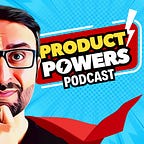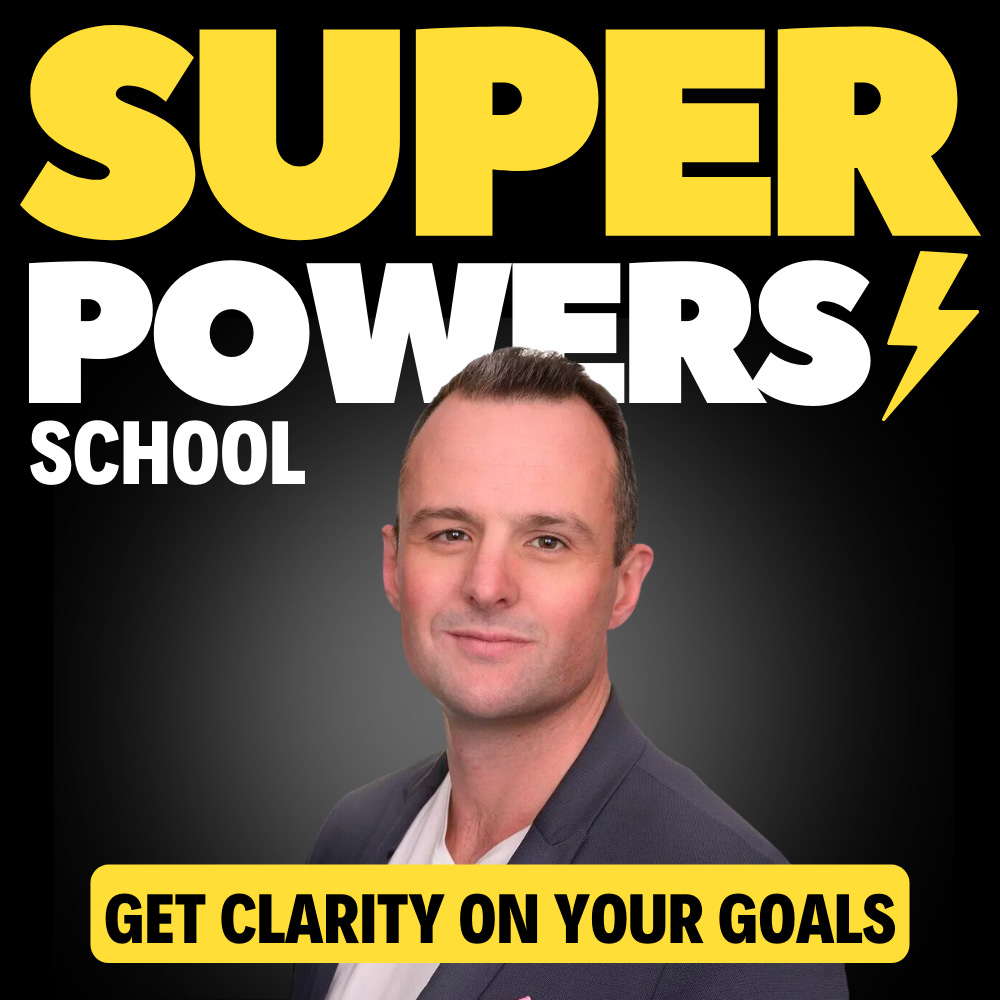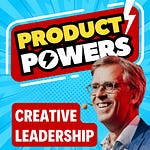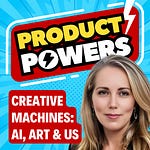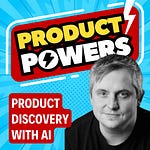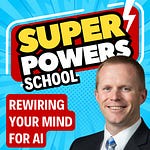Ben Kirk shares how he fell into accountability coaching and the importance of this coaching style, emphasizing the need to ask tough questions and hold people accountable for their actions. Apart from accountability, Kirk's superpower is clarity - the ability to uncover the rationales behind people's actions by asking questions. He advocates forming healthy habits and routines. Moreover, the episode also highlights Kirk's eclectic background, his views on the importance of sleep, and how taking on too much may lead to decreased productivity.
🔥 FREE eBook about getting CLARITY on setting your goals: Click Here
Ben Kirk (Accountability Coach)
Do you want to achieve more from your day and be able to focus on the key tasks that will actually move the needle for your life and business?
Have you been struggling with waking up earlier, building solid habits and routines, having clarity of purpose, and executing your growth plan?
Do you wonder how some people seem to “effortlessly” go from success to success while others get stuck on the hampster wheel?
I will help you engineer and achieve all your goals through a powerful routine of self-discipline, consistency, and accountability. Driven by our exclusive and world-class digital platform, you will get measurable indicators and graphical feedback on your performance, meaning that you’ll perform with consistency, implementing incremental change that will exponentially grow your business.
As you track and stack your wins, your new routines and clarity will make your momentum unstoppable, finishing your days, weeks, months and years with a remarkable feeling of success and accomplishment.
⚡️ In each episode, Paddy Dhanda deep dives into a new human Superpower and gives practical advice on how you can apply it immediately.
👉 Sign-up to Newsletter: https://www.superpowers.school/subscribe
👉 YouTube: https://www.youtube.com/c/paddydhanda/
★ BUY ME A COFFEE ★
If you enjoy the podcast, then you can donate a small amount here as a token of your appreciation: https://ko-fi.com/paddydhanda
Transcription:
[00:00:59] Paddy Dhanda: Dear friend, thank you for joining us for another episode of the Zupa School Podcast. I'm your host Paddy Danda and on today's episode I have somebody who has stayed awake till 1am in the morning to record this episode with me so I am very grateful for that.
He is all the way from Australia he is a accountability coach. I'm going to find out exactly what that is in a moment, but I have the amazing Ben Kirk. Now, Ben has a mission to demystify the science of success and cut through the BS fluff and waffle of self help and with clear actionable advice that will move the success needle For you his mantra is do better be better win the day and that sums up his philosophy of incremental self improvement No excuses and a bias for action.
Hey, Ben, welcome to the show.
[00:01:54] Ben Kirk: Thanks very much, Paddy. It's fantastic to be here.
[00:01:57] Paddy Dhanda: Are you welcome now, Ben? I want to get this out of the way first.
Understanding the Role of an Accountability Coach
[00:02:00] Paddy Dhanda: Why is an accountability coach? Because we were talking about this very briefly before we kicked off. And I said, I'm going to pause that conversation and we're going to have it out on the episode. So tell me more about that.
[00:02:10] Ben Kirk: Yes. Okay, great. Accountability coaching is something that I kind of fell into. So I've been a business coach. I've been an executive coach. I've worked and I guess I've crossed over to life coaching as well. And one thing that The feedback that I kept on getting was that, what does Ben do? How does he help us?
Is he like some leadership guy or is he some management guy or productivity guy? And I said, no, you, Ben really just holds our feet to the flames. He's just that guy that cracks the whip when he needs to. He's that guy that is there to ask you the tough questions that nobody else is asking.
He's that guy who keeps us accountable. And I thought, well, okay, accountability coaching that seems like it's a bit of a new niche that maybe I'm starting to, to work into, to develop. Maybe we're going to start hearing more talk about accountability, people taking responsibility for their actions, people being held accountable for what they do.
And as a leader. Frequently we hear about their executive team or other people that are like, yes, men, that they're just, yep, yep, what you're doing boss is great. Yep. Keep doing that boss. And no one is really holding them accountable in that sort of the caring sense at it to make sure that they are following through on what they say they're going to do and what they identify that they're going to do as their main objective. And so that's sort of what I do. They tell me what what they're aiming to achieve. I break it down. We break them down into smaller goals, or maybe we'll push it forward. Look at five year goals or something. And I'm holding them accountable to those small actions to do weekly that they know incrementally will get those results in the end.
And my basic training is that I'm not afraid to ask those tough questions. I'm not afraid to call people out when they're saying one thing and doing another.
And a lot of these guys and girls aren't really used to have someone just say, Hey, you said you're going to do this last week. You didn't do it. Why? What's the reason? No, no, no, that's not a reason. That's an excuse. Let's work out why you didn't do that. And that's where the accountability comes in.
[00:04:04] Paddy Dhanda: Oh, I love that.
The Importance of Job Titles and Curiosity
[00:04:05] Paddy Dhanda: And I was thinking recently I've seen quite a few people in my network on LinkedIn who have been updating their profiles and their. Titles and things like that. And I'm seeing some really interesting titles now out there and I just feel If we just have a typical title of, Hey, I'm a, I don't know, a coach or a life coach or whatever, no disrespect to life coaches.
I don't think it sounds as interesting yet when you have something like yours, which is accountability coach, it just creates a curiosity. And I think invites people to ask you more and maybe even connect with you to just find out what it is that you do. I think that's a really great way to do it.
[00:04:44] Ben Kirk: Yeah. Awesome. And look, I've, you know, I used to market myself as a business coach but let's face it. I'm not that businessy I'm no business guru. I don't go into the financials. I do focus more on the leadership, on the behavioral science and what makes people tick.
Ben's Journey to Becoming an Accountability Coach
[00:04:57] Paddy Dhanda: I was actually doing this for myself the other day and I was using my good old friend ChatGPT to help me out because I think ChatGPT is kind of that little voice in my head now where I sort of talk to myself, but I'm actually talking to this AI and I put down all the things that I think I'm passionate about and that I think I've got some talent in and it came up with a, with a cool title.
So that's what I'm using now. I'm now settling on being an edutainer. So that was me bringing my educational side plus the entertainment side and making things fun. So that's what I'm doing from now on, folks. I am an edutainer and apparently that is a thing I've read somewhere as well.
[00:05:35] Ben Kirk: I love it.
[00:05:36] Paddy Dhanda: But this episode's about you, Ben. So... I'm hoping you're going to edutain us today with your chosen topic. What superpower would you like to bring to this show?
[00:05:45] Ben Kirk: Yeah, thank you.
The Superpower of Clarity
[00:05:46] Ben Kirk: So my superpower would be clarity. But more than just clarity in general, it is the curiosity to ask the questions, to understand why someone is doing what they're doing. And by asking those questions, we're drawing out clarity both for them. and myself. And normally that's where we start to get to the breakthroughs.
And, and clarity is one of those things that that continues right through all the methodology that I use. And yes, there are things that are probably stolen from, from gurus and other authors and things like that.
The Role of Clarity in Goal Setting
[00:06:16] Ben Kirk: But the clarity of understanding where it is that they want to go, what do we need to do to get us there?
And so many people don't ask the questions. Two, three, four, five deep to really understand the reason why or what they need to do to achieve that. And that is, I think the superpower that I've got is that I'm not afraid to keep asking those questions. Now that doesn't make sense. Tell me more. I'm not feeling it from you.
Tell me more. And and doing it in a way that, of course, is respectful and builds rapport. Normally my clients end up getting that conclusion themselves three or four deep and okay, now we've got that. Now we've got something we can build upon and now we can grow.
Now we can reflect. Now we can take back the feedback. Now we can build week on week. It was really someone told me years ago. Probably one of my mentors was Clarity is King. Clarity is King. And I think I was more talking about my own writing style at the time was that I was very verbose.
And in a way moving towards my coaching sessions, which are now just 15 minutes. So I don't do the hour and a half coaching sessions anymore because that's where I talk about the waffle and fluff. It's just time going back and forth. Clarity is we have 15 minutes to get through this call.
We are going to uncover those obstacles that held you back. And we are going to work out how we can deal with them next week and be better. We can do better. We're going to be better and we're going to win. We're going to win the day and we're going to win the week. We're going to win the quarter and we're going to win that year.
And so that's where it sort of all ties together.
[00:07:46] Paddy Dhanda: And I guess clarity could happen at lots of different levels. I'm just thinking out loud, you know, for many of us, we often ponder over our purpose and trying to get clarity over why are you even here? What am I? Put on this planet to do but that's quite a big big deep level I'm guessing there's there's other aspects where clarity is really important in like you mentioned on a day to day basis You've got daily goals weekly goals monthly goals and so on where do you focus your efforts on mainly
[00:08:16] Ben Kirk: It depends on the point that people come to me. So a lot of people come to me because they are feeling overwhelmed with the amount of work that they have to do. They're often got a side hustle, they've got their main job, or maybe their main job, business owner, they've got a lot of staff, they've got all these things going sideways, and they're feeling that sort of overwhelmed.
So in that point, the clarity is trying to understand what is that one thing? What is that main thing or main issue? effort, or as I say, sometimes a high value task, HVT, that they need to be focusing on. And it's about cutting away all the other stuff, focus in on that thing that's going to move the needle the most for them.
So clarity on that. So if they come to me in that, in that state, then that's what I'll work on. Eventually, or maybe over the next few weeks, we'll go back up. We'll go a bit more high level. Okay. What is the clarity of purpose for this quarter?
What is the clarity of your mission as a business? And so then we'll go all the way up and we'll look holistically at their relationships, at their business, at their financial security, all those sort of areas and try to get clarity on all those. And then from there, we start to pull out again, what are those individual things we need to do in order to achieve those goals in those areas?
So I'll meet them where they're at. But normally it's got to go back to that main clarity point that you brought up there. Is that clarity of purpose and how do we start to, to uncover that? So it does absolutely go all the way through, but yeah, I'll just meet people where they're at. But I do have a bit of a master plan for them over the month or so.
[00:09:40] Paddy Dhanda: and how much of a Challenge is clarity out there. Like are you finding a lot of people? Are struggling with this and are there any kind of research examples that you can give to quantify the lack of clarity that people are facing out there?
[00:09:56] Ben Kirk: You know, I really should have some research on that. I've been delving more into the behavioral science side of things, of more into the habit theory, those, those sort of areas, because I think once we can identify what our task is, or our objective is that's going to move the needle the most we need to work to that into a habit and into a routine.
So I've been focusing most on that, but that's a very good point. I'd really love to sort of go into, what clarity means to people and how many folks sort of realize, or is all this stuff that I've got around him a monkey mind or around me? Is this because of clarity or is it because of just life in general?
Or is it because of all these crazy feeds that I'm putting in my brain all the time through social media or for news or all this other stuff? So I haven't looked at it to that depth, but thanks for bringing that up. Cause I think that would be really interesting to delve into and understand.
What percentage of people are really struggling with this? Everyone I speak to though, is when we go through the questioning, when we ask more questions, it's like, Oh yeah, well that sort of made sense. I should have thought of that. So it's, it's always there. That clarity is there. It just needs to be uncovered.
We just need to peel away at it.
[00:11:01] Paddy Dhanda: Yeah, I was going to say my hypothesis would probably be that nearly everybody needs this help because anybody we talk to, there's always some blind spot that we have. And once we discover it, that's when we can start to get things to be more clear. Could you give some examples of the types of people that have come to you and then have you managed to turn things around for them?
[00:11:24] Ben Kirk: Yeah. So it is an absolute full spread. So I deal with CEOs, I deal with entrepreneurs, business owners, people with the side hustles. I even had a housewife who wanted to be held accountable to make more time for herself. And so, you know, just making sure that she exercised or made sure that she goes out and books things in for herself and things like that. Whilst I do have a business background as far as I have run Decent sized organizations and I've built up some businesses myself as well I do think that the accountability side holds true all the way through and But I do love working with ceos entrepreneurs business owners just people that have that are really sort of Really striving.
They're really looking for something, something more already kind of what I'd classify as a high performer. Maybe the reason they don't have amazing clarity or the, and they need the accountability is that they've got so many balls in the air and they just need someone to bounce ideas off or to, to realign them, get them back on the path.
I love working with those people. They're always looking for feedback. They're always looking for another way to tweak how they're doing things or another.
[00:12:29] Paddy Dhanda: And your background, Ben, it must have had a big part to play in shaping you and the fact that you're focusing on this really tough topic. Could you tell us a bit more about that?
Ben's Personal Journey and Career Path
[00:12:40] Paddy Dhanda: Like how did you land in this area of specialism?
[00:12:43] Ben Kirk: Yeah, there's a long story and there's an even longer story but the way that , the way the story starts, so I actually always want to be a, a jazz musician as a kid. And I went all the way through high school. I played trombone, trumpet, some other brass instruments and piano and things, and ended up becoming a jazz.
And I could have been a better jazz musician had I actually practiced more and be more focused on those things. I found out much later in life there was a bit of an ADHD thing that sort of probably kept me looking at other shiny objects. But that was it all started. As a jazz muso, you don't get a lot of income particularly when you're not a great jazz muso.
So I became a teacher. And sort of through that period as well, though, I got really interested in, Started following some Tony Robbins and things on those. And I said, Oh, you know what? I'd love to sort of do what he does at some stage as a life coach. But the problem was I was, what was I, about 21 at the time?
I said, Oh, I can't be a life coach if I'm only 21 years old. I haven't really had much of a life. But by this stage I was actually lecturing at a, at a university at the time, but that took me through a journey ended up going overseas for a bit. As many people do in their sort of early twenties, at least in Australia, do that European trip back then it was jump on the U rail, get a URL pass and try to sleep on the train and get around.
And that's what, you know, discovering Europe came back and I worked for Apple. And I eventually got a chance to manage one of their stores. I was a very young manager. I was terrible. I think I worked really hard. I did a lot of long hours, but my leadership style was certainly not very well developed.
I held all the cards. I had all the control and I managed to wield things that way. So that told me a little bit. Well, In hindsight, what I could have learned as a leader. From there, I met my wife. She was backpacking in Australia. She was from Sweden. So then I thought, well, you know what? Let's go to Sweden.
I was starting to be a personal trainer. And I thought, I just wanted to understand more about how the body works and wondered why I was always this tall, skinny guy no matter what I ate. Maybe there's, you know, what more can I learn about that? Went over Sweden worked there as an Aussie personal trainer, did some cool stuff and then got involved with international startups, had my own building company, just sort of found my way through there.
When I came back to Australia, my personal training qualifications lapsed and by this stage I figured, well, I was, you know, had a bit more of a life now how about this sort of coaching scene, what's that like? And it wasn't that far removed from being a personal trainer really. And I fell into working for Brian Tracy International.
So I'm fortunate to call Brian Tracy one of my early mentors, I guess, and understanding from his book about habits, his book about no excuses about goals, all those sort of things, focal point. And that really sort of helped develop a lot of the ideas that I'm now I guess trying to teach or trying to uncover from people.
And yeah, some business along the way. And then at 40, I thought, well, what else is there. And I thought I'd joined the army and all those things combined, I guess, has built the sort of a general, in many cases, holistic view about what we can do with coaching. But it's also given me a lot of interesting experiences that I can draw from and ways to find rapport with my clients and then hopefully find commonalities and then be able to do this accountability thing.
[00:15:53] Paddy Dhanda: Fascinating. And I've got a follow up question for you. Sounds like you've gone on quite a journey and it's gone lots of different ways. You mentioned everything from entrepreneurship through to the army, through to personal trainer, like there's a lot there. Would you say you lacked clarity and that's the reason why you went through all of those journeys?
Or would you say you actually had lots of clarity and actually that was all done very purposely so that. You were trying to get to a certain destination, which is where you are now.
[00:16:26] Ben Kirk: That's a great question. And. When I reflect back on it, and when I reflect back to me as a young 20 year old wanting to be a life coach, I've now sort of gone full circle 23 years later, 24 years later, and I found myself in that coaching. So one can look at that was, was that a common theme through that period?
I, I would tend to say though, is that. I think I lack clarity. I think I was searching for something. I think I was really curious about how people worked in all these different industries. I was fortunate enough to meet high performers in all those industries and a chance to learn from them.
So I guess I had this curiosity for learning, curiosity to take these insights away from these people. And Then yeah, it just went, then it just went full circle and I guess I've found what I was looking for. Now I have clarity. There were moments of clarity along the way. And I'm still searching for more.
[00:17:22] Paddy Dhanda: And I have another question on that. Is it okay sometimes not to have clarity therefore, or would you say we should always strive to gain that clarity? Cause I'm just thinking there are moments when I have no idea what I should be doing, and I think I'm just going to go with the flow and see what happens.
And so if someone asked me, like, are you really clear on where you're going? I'd be like, no, I have no idea. And there's other times when I'm like laser sharp and I'm like, that's the thing I want to get to. I just don't know how to get there yet, but we're going to figure that out. But I, I definitely can see the destination.
I'd love to get your perspective on that.
[00:18:00] Ben Kirk: think that a lot of people know inherently what their North Star is. So they sort of, if you look at that as a clarity point, I guess is that's sort of where I want to go. Not a lot of people will have clarity on absolutely how they're going to get there. And if we've absolutely clear about how we're going to get there, maybe that's a little boring.
Maybe we're losing a lot of journeys along the way. Maybe by just having the absolute clarity, we're lacking that sort of curiousness that ability to learn from people we meet along the way. Those, those sort of areas that I think help really complete us as a person.
I think so that the clarity piece comes into play when we have clarity on our goal, and we know what our goal is going to be, and we just need to know what those few steps to take towards that goal need to be. What are those main steps? What are those steps are going to move the needle the most towards that, towards that goal?
By clarity, I'm not saying it needs to be, we've got the horse blinders on, and that is the only route we're going to take. I think anyone that's been around long enough knows that that never happens anyway. So we need to maintain that curiosity in there as well.
[00:19:03] Paddy Dhanda: Oh, I love that. In terms of people out there in the world right now. There's so much going on, right? There's all these wars going on. There's lots of fighting. There's so much going on and I think for many of us sometimes we struggle to see like, what the future is going to be like, you know, I think about my kids and I'm just trying to get through the next few months, nevermind thinking about five years down the line, because I just don't know, we're seeing AI taking over, we're seeing, more wars in the world.
There's just so much happening global warming. Like I'm painting a pretty bleak picture at the moment. So I think the work that you're doing is critical because we do need to then really get laser sharp on the things that we want to achieve. May not know the way to kind of get there.
And I absolutely get that. So that's a great point. You mentioned earlier about. You've been looking at a lot of the kind of behavioral science side of things. Could you share some insights on that?
The Impact of Behavioral Science on Coaching
[00:19:58] Ben Kirk: Yeah, delving into sort of the more Habit theory and have a formation side. There's been some fantastic authors. I mean, I'm sure one that comes up all the time is atomic habits. And just really going deep on helping people build habits, helping people build routines and how those routines essentially are.
Stacking habits. Behavioral science has taken me down the area of sort of DISC and all the other sort of behavioral analysis side as well. And I look at all, all these different areas and I say, okay, how can we make them into play together? How can we take what we've learned from, even from, from military leadership and those advice and, and how actually, how deep that goes into Behavioural science to understand how to motivate and how to lead people and then looking at the basic habits that are formed along the way, the habits that you can encourage people to form in order to lead and motivate them as well.
And that's sort of been the area that I've been delving into a bit and. Yes, some of my clients are fantastic test subjects where we can try new things. And I'm sort of really in that experimentation phase at the moment. I've created an app and that is a way of tracking some main, what I'm, I haven't got a better term for it at the moment, but success markers.
The main one is winning the day or winning the week. We also look at health, sleep and fitness. We also look at productivity, look at motivational morale. We look at what their routine is like, and we look at what their capacity is like, and all that's tracked through our weekly meeting.
The app does the tracking in the background, or they do like a weekly review. It's really super easy to do, but over time, we're able to see what things are impacting their overall performance, or at least how they feel their performance is. So one correlation that we're seeing is, of course, when health, sleep and fitness dwindles.
Then a week or two later, we're starting to see that productivity wane, particularly if the capacity level is above the 100%. We start to see all these things starting to unravel. However, if their routine is at a five out of five through that period. then these other areas don't seem to be falling off.
They're still winning the week. The productivity might be waning a little bit, but they're still winning the week. Because something that we've embedded into their routine is enabling them to do that. We're really starting to see some patterns formulate and that's what I'm loving about it.
[00:22:21] Paddy Dhanda: Oh, thinking about my sleep for a moment, I do think I need to improve in that area. Because I'm a bit of a night owl and I think at times I do push myself a bit too much in terms of how late I stay awake. But not as late as you, Ben, because it's probably way late for you.
[00:22:38] Ben Kirk: little bit. Yes, that's quite a funny thing, though, because I mean, I've become an early riser. I'm getting up at 5am, 5. 30am most mornings. That is when I hit the gym. Believe it or not, my kids are actually with me at that time hitting the gym. I don't force them to do that. That's the sort of the routine that we developed.
However, I was a jazz musician. We didn't start work till 11pm at night. That's when we got on stage. That's when we started our gigs. So a lot of people are like, Oh, you were a night owl. I'm a night owl. I can't become a morning person. Or I am a night owl. Ben, can you help me become a morning person? And what I'll say is that actually, why do you want to be a morning person?
Why do you want to get up at this 5am? Well, because all the top performers get up at 5am. It's like, oh really? Do they? I think all the top performers get a certain amount of sleep so they're able to perform well, be high performers throughout the day. It doesn't matter if you're a night owl. If that's that creativity telling me that you feel you're at your best, then maintain it.
But don't... Don't make yourself feel bad for having to sleep till 8am or something then in the morning, because you're still looking to get your seven and a half or your five sleep cycles or something like that. So you get your sleep. So it's an interesting balance between that.
And yes, I had become an early riser and I do absolutely spruik the benefits of it, but we need to understand that someone's reasons why to become an early riser. And quite often. It's just because they heard somewhere that that's what all the successful people do.
[00:24:01] Paddy Dhanda: Oh yeah, I've heard a few of those motivational speeches where they tell you... While everyone else is sleeping, you could be taking over the world and all that good stuff. So I, I hear you on that one. So, Ben, we're fast approaching time. And I was going to ask you one of my favourite questions to finish the show, which is, if I could give you any superpower to abolish something in the world of work, what might that be for you?
The Importance of Efficient Meetings
[00:24:24] Ben Kirk: Hmm. I think it would be meetings over 15 minutes long
[00:24:27] Paddy Dhanda: Oh, no, we've
failed then,
[00:24:28] Ben Kirk: far as I mean, except podcasts because they're a fantastic medium and they're an educational medium in the, in the sort of the corporates, the corporate space, what I've, what I've seen by taking my coaching sessions from one hour to 15 minutes, sometimes they go to 20.
But in that period of time, people have clarity about why they come into the meeting, they come prepared, they do the homework beforehand, we jump straight in, we get down to the nuts and bolts, we dig deep, we come up with solutions, and then we talk about the next week and we plan things. And I think if meetings could just be generally structured like that, if people could come prepared, if people could understand what they're looking to get out of the meeting, and they, at the end of it, They talk about the objectives.
They talk about what we're going to do next. And then someone holds them accountable to it. So then the next week we've moved forward. That's what I want to abolish any other means. I don't do that.
[00:25:22] Paddy Dhanda: You have my full support on that one, Ben. I am also a big advocate of making meetings better. I wrote a blog article on this a while back and it was all about how... Everything else in the world seems to have moved on, but yet our format for meetings has never really gone beyond the dinosaur age. It seems like we're still insistent on having one hour meetings just because the Microsoft Outlook client tells us that's the default.
And and we just all follow that, but I absolutely get you. So yes, let's abolish meetings that are over 15 minutes just for one day. And let's see how it goes. Let's see what people think.
[00:25:58] Ben Kirk: Let's do it.
[00:25:59] Paddy Dhanda: Awesome.
How to Contact Ben
[00:26:00] Paddy Dhanda: And Ben, if people want to get in touch with you what's the best way that they can do that? And have you got any links or resources that people could follow up on?
[00:26:08] Ben Kirk: Yes, I certainly do. And thanks for asking. If they go to wintheday. com. au forward slash superpowers, then I've got a few little goodies in there. All these little, little ways that we can try to gain clarity, whether it is my goals roadmap, I've got a little ebook in there, it's called the 10 by 10.
Brian Tracy told me about that back when I first started with him, it's never been published anywhere. I've turned it into a bit of an ebook of a really easy way to uncover. What are those 10 things? What are those 10 top goals? It's over 10 days. I even got a five day version of people that can't do it for 10 days.
But over 10 days, how to find those, those 10 goals. And then from there, if they complete that, they will have a free call with me where I'll show them how to break down one of those goals into a whole lot of different parts gain clarity on what that goal is, clarity on the next steps. And that's the free call because I think that once people see that.
They go, Oh, there's a couple of these things a little bit hard, all these obstacles. And they go, maybe I need an accountability coach to help me get there. Great. Maybe they learn enough from the call that they've got other accountability partners around them that they can then employ to help them. And yeah, I have a couple of little PDFs in there like that.
And then also a link to reach out and book a call me straight away. And of course, LinkedIn, just look for Ben J. Kirk on LinkedIn and people can certainly connect with me there as well.
[00:27:28] Paddy Dhanda: Oh, brilliant. And thank you. And we'll share those links as well in the show notes. So you don't have to memorize all of that. So that's that's fantastic. Well, Ben, it's been a pleasure and I do really thank you for for staying up with us so late as well, and for sharing your valuable insights.
I feel like I've got a few things to work on, so I will take those away. So thank you for being on the show.
[00:27:48] Ben Kirk: Oh, you're welcome. This has been great fun.
It's the end of another episode. Thank you so much for listening. Please do connect with me via LinkedIn and drop me a message. And let me know your favorite takeaways from the episode. Also, don't forget to subscribe to the superpower school newsletter so that you can be notified of all future episodes. Simply visit the website, www.superpowers.school. Thank you once again

